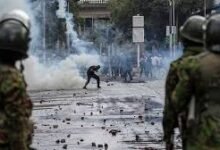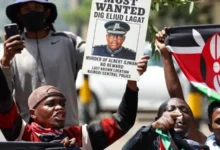Rwanda genocide: Orphans’ searching for family continues

A quarter of a century after the Rwandan genocide, some orphans are nonetheless desperately exploring for any clue about their misplaced pasts.
Oswald knows nothing about his life prior to the moment a woman picked him out of the pile of bodies in Kigali, Rwanda’s capital, as he tried to suckle a lifeless woman’s breast.
It is considered he was about two or three months, but not a person knows for sure.
What is sure is that he is one of the lot robbed of their names, birthday, and history during the hundred days of violence which engulfed Rwanda, starting on April 7, 25 years ago.
And as Rwanda marks the anniversary, Oswald and other young adult men and women just like him – found alone, far too young to understand what was going on– will be scanning the crowds, thinking if their families might in fact be standing amid the survivors, instead of buried together with the 800,000 Tutsis and average Hutus slaughtered by ethnic Hutu extremists.
“Fifty per cent I think my parents are dead, 50 per cent I think I can still find them,” Oswald says, exhibiting a hope which numerous may find shocking following all these years.
Oswald is among an estimated 95,000 children believed to have been orphaned during the genocide, which started several hours after an aircraft carrying then-President Juvenal Habyarimana was shot down, killing all those on board.
The Hutu woman who found him, Josephine, lost her partner during the genocide. He was killed by the extremists for seeking to help Tutsis.
She, meanwhile, was raped by the Interhamwe soldiers – the militia who carried out lots of the killings – and infected her with HIV.
Despite this, she found a place not only for Oswald, but also other youngsters, raising them as her own.
But as Oswald grew up, he realised that something was missing.
“I could see other children with fathers, and I started wondering about my own parents,” he told the BBC.
Trying to discover who you are when you have so little to go on is nearly impossible.-BBC






